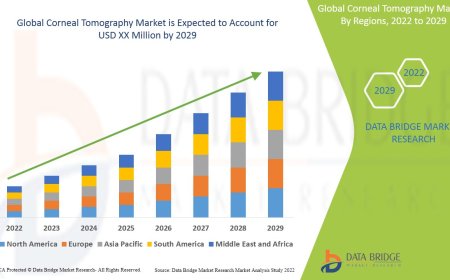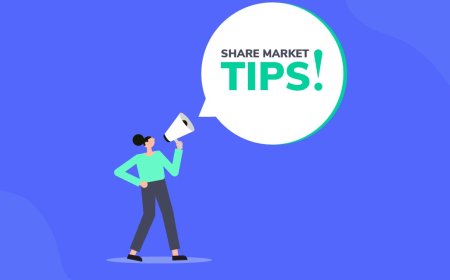Top 25 SEO Checklist for Ecommerce Websites (2025 Update)
Want to turn more clicks into conversions? A well-optimised ecommerce website is more than just fast and pretty—it needs an airtight SEO strategy. This blog outlines the top 25 must-follow SEO tactics tailored specifically for ecommerce businesses to boost visibility, rankings, and revenue.
Is your ecommerce store getting lost in the search results?
You're not alone. With thousands of online stores competing for the same clicks, showing up on page one of Google isnt just a bonusits survival. But SEO for ecommerce isnt like standard websites. From duplicate content issues to poor product descriptions and messy site structures, ecommerce SEO presents its own set of challenges.
To help you rise above the noise, heres a comprehensive, up-to-date SEO checklist built specifically for ecommerce websitestrusted by SEO experts, used by top digital marketing agencies, and tailored for growth.
Table of Contents
1. Optimise Product Titles with Keywords
2. Use Unique Product Descriptions
3. Compress Images Without Losing Quality
4. Set Up SEO-Friendly URLs
5. Prioritise Mobile Optimisation
6. Fix Broken Links
7. Include Alt Tags for All Product Images
8. Implement Structured Data Markup
9. Create Category-Specific Meta Titles & Descriptions
10. Use Internal Linking Strategically
11. Avoid Duplicate Content with Canonical Tags
12. Create a Blog to Drive Top-of-Funnel Traffic
13. Ensure HTTPS is Enabled
14. Optimise Site Speed
15. Enable Faceted Navigation Carefully
16. Submit an XML Sitemap to Google Search Console
17. Optimise for Voice Search (Yes, Really)
18. Leverage Reviews for UGC and SEO
19. Local SEO for Brick-and-Clicks
20. Focus on High-Intent, Long-Tail Keywords
21. Keep Your Site Architecture Flat
22. Dont Ignore Pagination Best Practices
23. Add FAQs with Schema Markup
24. Monitor & Improve Core Web Vitals
25. Track Performance and Refine Continuously
1. Optimise Product Titles with Keywords
Use your primary keyword naturally within product titles. Think like your customerswhat would they search for?
2. Use Unique Product Descriptions
Never copy-paste manufacturer descriptions. Create helpful, persuasive content that answers user intent while staying unique.
3. Compress Images Without Losing Quality
Large images slow down your site. Use tools like TinyPNG or WebP formats to optimise visualsboosting both speed and SEO.
4. Set Up SEO-Friendly URLs
Keep your URLs clean, short, and keyword-rich. Avoid random numbers or unnecessary parameters.
5. Prioritise Mobile Optimisation
Over 60% of ecommerce traffic now comes from mobile. Responsive design is non-negotiable.
6. Fix Broken Links
Dead ends harm user experience and rankings. Regularly crawl your site and fix 404 errors or redirect broken pages.
7. Include Alt Tags for All Product Images
Alt tags improve accessibility and help Google understand what your images representgiving you a chance to appear in image searches.
8. Implement Structured Data Markup
Use schema to highlight prices, availability, reviews, and more. Rich snippets can significantly improve CTR.
9. Create Category-Specific Meta Titles & Descriptions
Dont use the same template across all categories. Tailor metadata to boost visibility and relevance.
10. Use Internal Linking Strategically
Guide users and search engines through your site. Link from blog posts to product or category pages to distribute authority.
11. Avoid Duplicate Content with Canonical Tags
Duplicate content is common in ecommerce, especially with filters. Use canonical tags to tell Google which version to index.
12. Create a Blog to Drive Top-of-Funnel Traffic
Content marketing isn't dead. Share buying guides, how-tos, and comparisons to drive traffic that converts. A good SEO agency can help plan this strategy.
13. Ensure HTTPS is Enabled
Trust and security are ranking signals. If youre still on HTTP, its time to upgrade.
14. Optimise Site Speed
Use lazy loading, compress code, and leverage browser caching. A fast site improves SEO and conversion rates.
15. Enable Faceted Navigation Carefully
Too many filter combinations can create crawl issues. Block unnecessary pages with robots.txt or use noindex tags strategically.
16. Submit an XML Sitemap to Google Search Console
Let search engines discover and index your most important pages with a clean, updated sitemap.
17. Optimise for Voice Search
More users are searching hands-free. Use natural language and question-based keywords to appear in voice results.
18. Leverage Reviews for UGC and SEO
Customer reviews improve trust and naturally add keyword-rich content to your product pages.
19. Local SEO for Brick-and-Clicks
If you have physical stores, optimise your Google Business Profile, use local keywords, and embed maps.
20. Focus on High-Intent, Long-Tail Keywords
Buy organic dog food online converts better than just dog food. Tools like SEMrush or Ahrefs can help uncover gold.
21. Keep Your Site Architecture Flat
Make sure every page is accessible within three clicks from the homepage. Easier for users, better for bots.
22. Dont Ignore Pagination Best Practices
Use rel=next and rel=prev tags or consolidate paginated pages with strong internal linking.
23. Add FAQs with Schema Markup
Answer common queries clearly and use FAQ schema to improve visibility in search results.
24. Monitor & Improve Core Web Vitals
Google uses Core Web Vitals as a ranking factor. Focus on LCP, FID, and CLS metrics for technical gains.
25. Track Performance and Refine Continuously
Use GA4, Search Console, and SEO tools to monitor results. A reputable CRO agency can help turn more traffic into paying customers.
Bonus Tip: Dont DIY Everything
Running a store is hard. Managing SEO, PPC, and conversions on top of that? Even harder. Thats where experts step in. From e-commerce PPC management to comprehensive SEO, a skilled PPC agency or white label marketing agency can save time, boost ROI, and help you grow sustainably.
Final Thoughts
Ecommerce SEO is a marathon, not a sprint. By following this checklist, youll build a strong foundation to attract, convert, and retain more customerswithout relying solely on paid traffic.
Need expert help optimising your ecommerce site? Get in touch with a trusted Google Ads Specialist or top-rated digital partner today.
Author: Ishant Sharma
Ishant Sharma is a Google Ads Specialist, Meta Ads Expert, Bing Ads Consultant, and seasoned SEO strategist. With over 10 years of experience helping businesses scale their digital marketing performance, hes worked with global brands and fast-growing startups alike.
? Connect with Ishant on LinkedIn




































